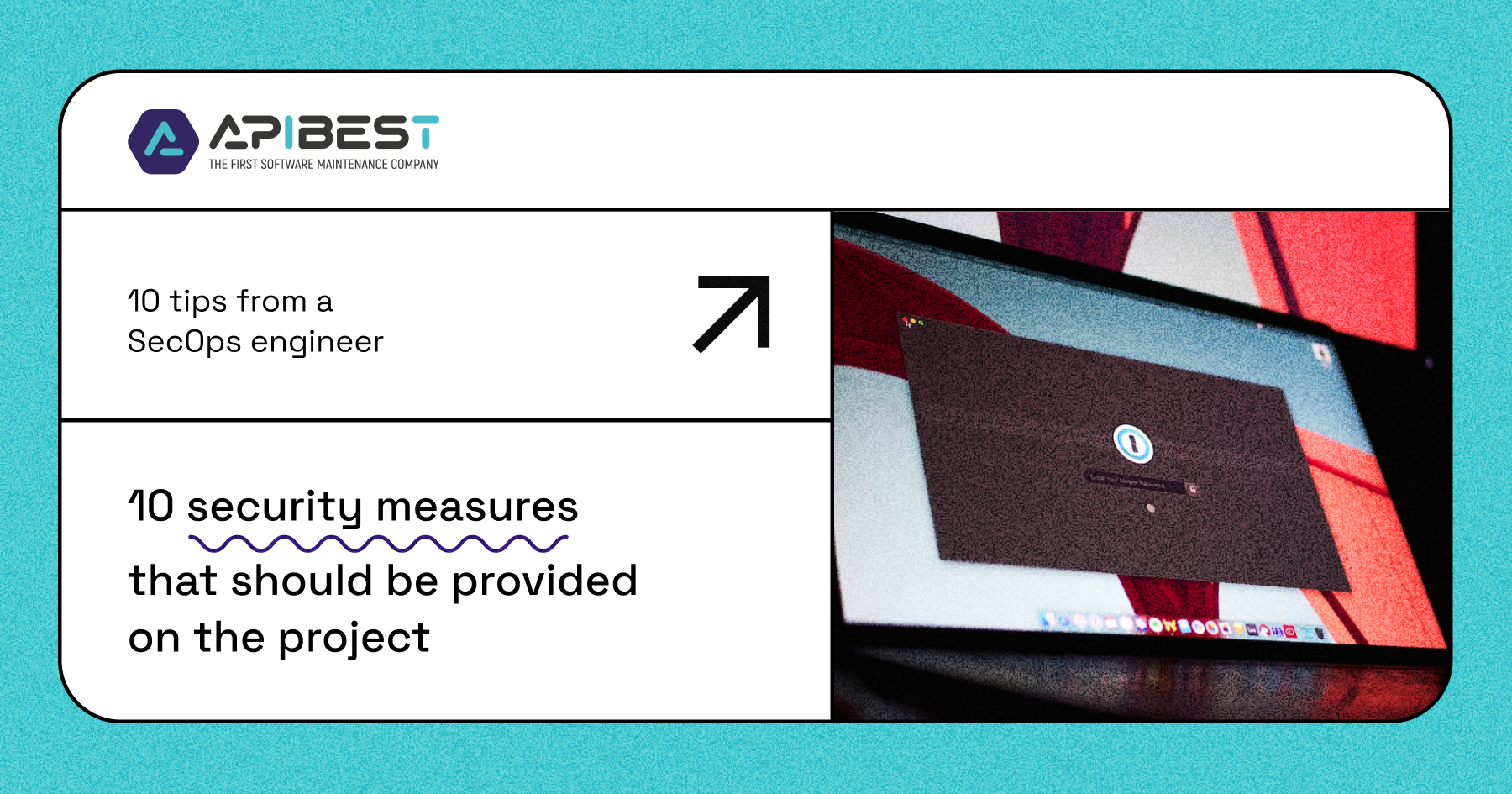How to ensure safety on a project - 10 tips from a SecOps engineer
Read Time 4 mins | Feb 9, 2023 10:17:10 AM

Data is a powerful asset for every technology enterprise that allows them to move and improve.
Data has become more vulnerable to physical threats and cyberattacks in today's digital world. This problem has become especially urgent with the advent of remote work mechanisms.
However, project managers must work with employees and management to monitor security threats and trends.
We've put together 10 tips for project managers and executives to keep company data safe.
- Create a central repository
First, identify the sensitive information that needs to be protected. Then, store essential data in a secure, centralised location that is constantly monitored by your cybersecurity team. With a central vault, you can choose who can access them and be able to track movements and suspicious activities in the vault.
- Determine possible risks in advance
Don't let an unexpected event compromise your company's security. Instead, discover your risks and build a risk mitigation strategy into your security plan. Even so, issues will still arise from time to time, so they will need to be monitored, and their security impact reported to all stakeholders.
- Use a password manager
Having only one account password is convenient, but more secure approaches exist.
A password manager can help your team remember all the passwords you use, no matter how complex they may be. They can be tricky to set up, but once you get the hang of it, you'll find they're worth it. The password manager can store passwords and effectively suggest changing any weak password to make it stronger and more efficient.
The best password managers in 2023 were: 1Password, Dashlane, RoboForm, NordPass, and Keeper.
- Keep any confidential information private
Be careful when you give confidential information about your project, especially on the Internet. Always read the terms and conditions to know what you are signing up for.
In addition, we advise that while browsing the web from the device on which all project data is stored, it is good to check that the website does not pose a threat.
- Hire professionals who specialise in online security
A knowledgeable and experienced security team is a valuable asset. They can advise you on how security requirements affect project planning and resources and what type of monitoring you need.
- Train employees on how to protect project and company data
Employees must be trained to ensure they handle confidential and proprietary information with care and respect for the confidentiality of data.
- Control user access rights
Only some people need access to your company's most important data. Ask your IT team to review all permissions to see if unauthorised employees can access your sensitive data. Ask them to provide keys only to those who are allowed exclusive access to your data.
- Use antivirus and VPN
Use secure virtual private networks (VPNs) to protect your computers and smartphones. They protect your identity from hackers and hide your IP addresses.
Antivirus software is also required. This software is a set of programs designed to detect and prevent software viruses such as adware, trojans, worms, etc.
- Encrypt your data
Encryption is the process of encoding information to block unauthorised access. Only those with access keys can read or use the encrypted data.
Encryption makes it difficult for cybercriminals to exploit data leakage or even gain access to data. If your data is stolen, the hacker will still be unable to decrypt it.
- Back up your data regularly
Of course, it takes a lot of time to make regular backups. However, it is crucial to understand that the data is at risk without this. If you have a backup ready, you can quickly restore data after a malicious attack or theft.
For convenience, you can use secure cloud storage to create copies of your data. This is where disaster recovery as a service (DRaaS) can come in handy. These solutions allow businesses to back up their IT infrastructure without spending money on additional infrastructure and management.
Conclusion
Technology is an advantage, but hacking into company systems is standard these days. Of course, nothing will stop hackers from wanting to destroy systems or demand a ransom, but if a company adheres to these rules, it can protect itself from these threats.
